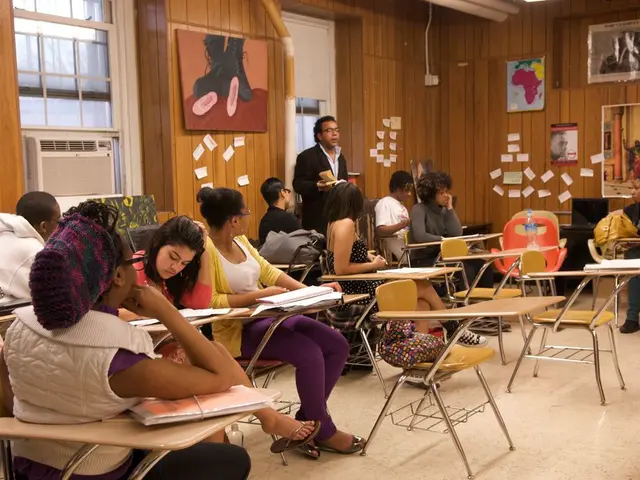Unprepared Yet Off to University: Immature Yet College-Bound
Preparing Students for College: A Collaborative Approach
Transitioning from high school to college can be a challenging time for many students, and it's essential for parents, students, and educational institutions to work together to ensure a smooth transition.
Firstly, it's crucial to acknowledge that not every student may be ready for college immediately after high school. College is often a significant financial investment, funded by parents' hard-earned cash, loans, and student summer earnings. Yet, colleges, by law and by inclination, do not involve parents in their children's academic progress.
This is where open communication between parents and students becomes vital. Parents should discuss clear consequences for poor grades or behavior, and negotiate when parents should be notified of academic struggles. A release of information signed by the student is necessary for colleges to share academic, health, and progress information with parents.
For students who are less mature than their peers, the first year of college can be considered a 'family project'. It's not about sudden independence, but a gradual letting go. The metaphor of a tug aircraft to a glider is apt: the tug gets the student started, and then lets go once the student can manage independently.
Many students have uneven skills in managing time, money, and responsibilities. For these students, a community college or a half-time load can help them adjust to college life. The goal of the first year of college for a late bloomer is to get the student headed toward a college degree, not to expect a magical transformation in maturity.
High school success for many students was partly due to parental monitoring and intervention. Without this guidance, students who are less mature are likely to struggle during the all-important freshman year. Therefore, it's important for parents to maintain their support, even as they encourage their children to take on more independence.
A contract outlining agreements should be made and written down. This contract should make students aware of the financial realities and consequences of college. It's also essential to discuss the importance of academic progress and the role it plays in their future.
Parents who wish for greater involvement in the academic progress of their children at university are those who communicate with their children and educational institutions to support their children’s learning experience and development. The search results do not specify particular identities or groups of such parents, but imply that parental engagement is considered important in the educational process.
In conclusion, preparing students for college is a collaborative effort. By working together, parents, students, and educational institutions can help students transition smoothly into college life and set them on a path towards success.
Read also:
- Peptide YY (PYY): Exploring its Role in Appetite Suppression, Intestinal Health, and Cognitive Links
- Toddler Health: Rotavirus Signs, Origins, and Potential Complications
- Digestive issues and heart discomfort: Root causes and associated health conditions
- House Infernos: Deadly Hazards Surpassing the Flames






